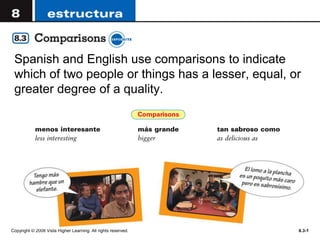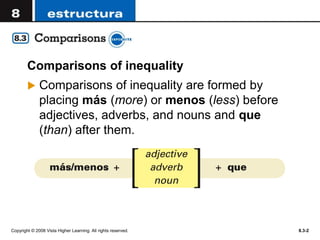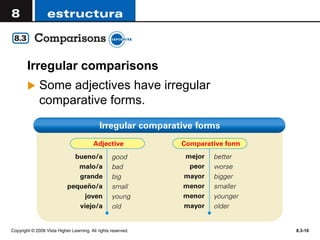The document discusses comparisons of equality and inequality in Spanish. It explains that más/menos and que/de are used to indicate greater/lesser degrees of qualities between two people or things. Comparisons of equality use tanto/tanto como, while irregular comparisons exist for some adjectives like grande/pequeño and adverbs like bien/mal. Examples are provided to illustrate these constructions.












